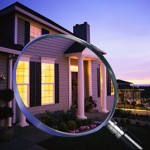 Home Inspections – A Key Element In The Residential Buying Process
Home Inspections – A Key Element In The Residential Buying Process
Home inspections are an essential part of the home buying process. Whether you’re purchasing your first house, or you’re a seasoned investor, in-depth inspections are often the only way to discover details of a home’s construction and other defects that may not be visible to the untrained eye.
Due to its sub-tropical to tropical climate, Tampa-St. Petersburg homes, especially older homes, are susceptible to termites, mold, mildew and wood rot, in addition to a variety of other maladies. A thorough home inspection will reveal readily observable problems, and a professional inspector will provide his or her client with an objective assessment regarding the conditions of the systems and components of a home. The assessment will also include recommendations to correct any problems the inspector uncovers, but most often it does not include the possible cost of the corrections. These estimates can be derived from the appropriately licensed contractors.
Keep in mind, inspectors look at readily accessible systems for flaws and deficiencies, but cannot reveal every problem that might exist in a given home.
9 Standard Home Inspection Components:
- Structural Inspection – A thorough assessment of any deterioration of the foundation, floor structure, wall structure, ceiling structure and roof structure.
- Exterior Inspection – The inspector will check the siding, flashing and trim, exterior doors, decks, balconies, porches, railings eaves, soffits and fascias, grading, surface drainage, walkways, patios and driveways. However, the inspector is not required to inspect shutters, awnings, fences, soil conditions, seawalls or docks unless otherwise licensed and/or requested to do so.
- Roofing – Roofing materials, drainage systems, flashing, skylights, chimneys and any roof penetrations are inspected and any deficiencies are reported. Noted will be any shingle deterioration, loose flashing, and weaknesses in roof-to-wall connections, etc.
- Plumbing – The inspector will look at the interior water supply, piping materials, drainage, vent systems, water heaters and any drainage systems such as sump pumps.
- Electrical – Professional inspectors will verify the amount of service to the home, cables, all service equipment, grounding, overcurrent protection devices, some lighting fixtures, switches and receptacles.
- Heating – All heating equipment, vent systems, accessible flues and chimneys will be inspected, but the inspection will not typically include heat exchangers, dehumidifiers or solar systems.
- Air Conditioning – Inspectors will check the condition of central and through-the-wall cooling and distribution systems but will not typically report on cooling adequacy.
- Interiors – All walls, ceilings, floors, stairways, railings, countertops and cabinets, doors, windows and garage doors are scrutinized. However, inspectors are not usually required to assess wall treatments, carpets or appliances.
- Insulation & Ventilation – The inspector will check the ventilation of attics and open foundation areas but will not generally report on the efficacy of any installed insulation.
Home inspectors do not generally look for asbestos, radon gas, wood-destroying organisms, rodents, lead paint or toxic mold. If the buyer or Realtor® suspects that these might be a problem, additional inspections should be ordered.
Once problems are detailed, contractors should be called to determine their scope and the expense of correcting them. And remember, no matter how young or old a house might be, every home will have issues, some minor, some not so much.
Chris Hounchell & Associates maintains close relationships with an experienced, professional and well-trained team of service providers and inspectors to assist in this critical stage of the buying process. Ask us (727-642-9107) who we recommend.
Leave a Reply